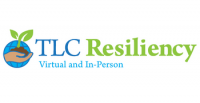Since the beginning of the Covid-19 pandemic, healthcare workers have struggled with a myriad of challenges. Lack of PPE, uncertainty of the virus, fear of getting covid and bringing it home to family members, and caring for very ill patients were concerning factors during the pandemic. Stress levels were very high and many healthcare workers left the field. As vaccines continue to roll out and Covid cases and death rates are dropping worldwide, healthcare workers can catch their breath. However, as healthcare workers slow down, they may be coming to terms with the mental toll that the pandemic has taken on them.
In a recent study of healthcare workers, approximately 23% of the sample showed signs of PTSD (Hennien et al., 2021) and some studies report even higher estimates. Hennien et al. also reported that healthcare workers with low levels of social support were at increased risk of developing PTSD. Thus, isolation and stress at work may lead to worrying symptoms of PTSD.
What is PTSD and what are the symptoms?
Not sure what PTSD is? PTSD is a disorder that develops in some people after experiencing a traumatic and/or frightening event. Symptoms must last for longer than one month, however, symptoms can appear days to years after the traumatic event. Symptoms of PTSD are broken down into four parts: re-experiencing, avoidance, arousal and reactivity, and cognition and mood symptoms.
Re-experiencing symptoms can include flashbacks of the event, bad dreams, and frightening thoughts. Thoughts, objects, and situations that remind the individual of the event can produce re-experiencing symptoms. Avoidance symptoms include staying away from things that may remind you of the experience, or avoiding thoughts and feelings related to the event. Arousal symptoms can include feeling on edge, having difficulty sleeping, being easily started and having angry outbursts. Lastly, cognition and mood symptoms can include difficulty remembering details of the event, feelings of guilt, negative thoughts about oneself and the world, and losing interest in usual activities.
What to do if you think you may have PTSD.
While most people do not develop PTSD after experiencing trauma, negative events such as the COVID-19 pandemic can lead to other additional mental health issues including depression, anxiety, and alcohol abuse. If you think that you are experiencing symptoms of PTSD or another mental health disorder, it is important to reach out to a professional and seek help.
We recognize that there can be stigma within the medical community about receiving mental health help, however, that is slowly changing. Current AMA guidelines encourage state licensing boards to require physicians to disclose physical or mental health conditions only if it currently impairs judgment or the ability to practice medicine. With this in mind, it is important for physicians and healthcare workers to recognize that they do not need to suffer in silence. This last year has taken a serious toll on everyone, especially our healthcare workers, and there is no shame in getting the help that you need.
If you believe you are suffering from a mental health issue and are interested in seeking treatment, please click here for resources from the CDC for helplines and therapist finders.
Citation: Hennein, R., Mew, E. J., & Lowe, S. R. (2021). Socio-ecological predictors of mental health outcomes among healthcare workers during the COVID-19 pandemic in the United States. PloS one, 16(2), e0246602.

